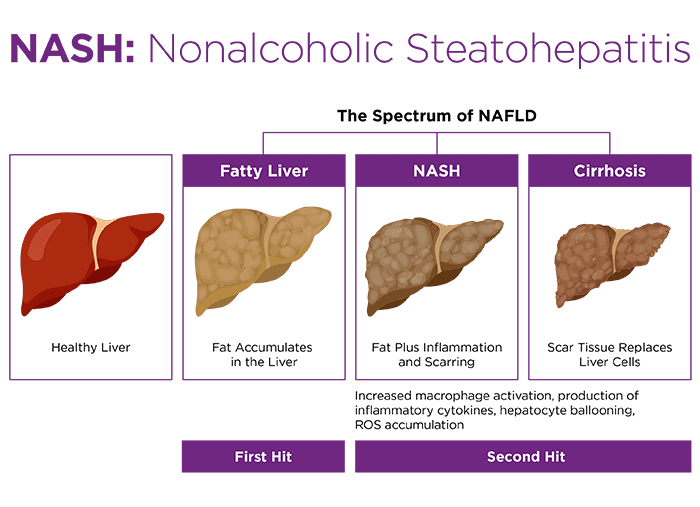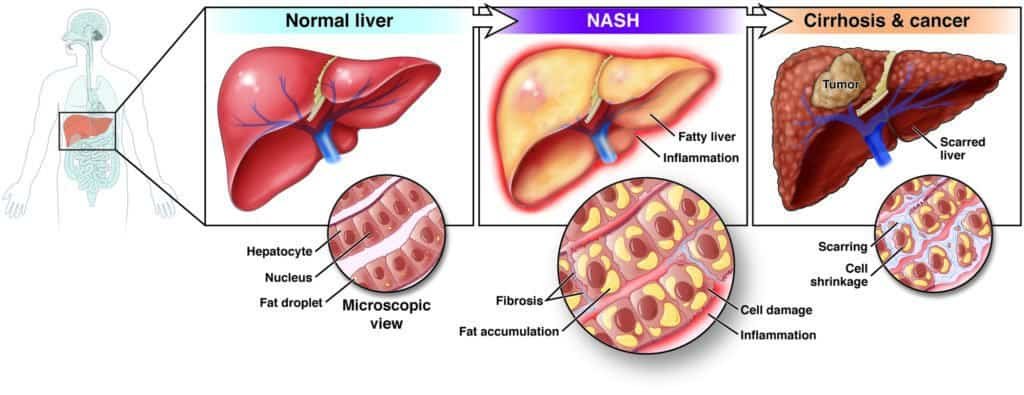Nonalcoholic steatohepatitis (NASH) is a type of nonalcoholic fatty liver disease (NAFLD) that causes inflammation and damage to the liver. NASH affects millions of people worldwide and is a leading cause of liver-related complications, including cirrhosis, liver failure, and liver cancer. One of the most significant concerns for people with NASH is their life expectancy. In this article, we will explore the factors that can impact NASH life expectancy, including disease progression, lifestyle modifications, and the presence of other medical conditions.
NASH and Life Expectancy:
NASH is a complex medical condition that can vary widely in terms of severity and progression. Not everyone with NASH will develop cirrhosis, and the rate of disease progression can vary widely among individuals. However, studies suggest that people with NASH have a higher risk of developing cirrhosis and liver-related complications, which can impact life expectancy.
Several factors can influence life expectancy in people with NASH, including age, overall health status, and the presence of other medical conditions such as diabetes and obesity. The table below summarizes some of the factors that can impact NASH life expectancy:
| Factors That Can Impact NASH Life Expectancy |
|---|
| Age |
| Overall Health Status |
| Disease Severity |
| Presence of Other Medical Conditions |
| Lifestyle Modifications |
Age is one of the most significant factors that can impact NASH life expectancy. As we age, our bodies become less able to recover from illness and injury, making us more susceptible to complications from NASH. Additionally, older individuals may have other medical conditions that can impact their overall health and well-being.
Overall health status is another essential factor in NASH life expectancy. People who have other medical conditions, such as diabetes or obesity, may be more susceptible to liver-related complications and have a higher risk of developing cirrhosis.
The severity of NASH can also impact life expectancy. Individuals with severe NASH may be more likely to develop cirrhosis and other liver-related complications that can impact their overall health outcomes.
Lifestyle modifications can also play a significant role in NASH life expectancy. Weight loss, exercise, and a healthy diet can help slow the progression of the disease and improve overall health outcomes. Additionally, avoiding alcohol and certain medications that can be harmful to the liver can help preserve liver function and reduce the risk of liver-related complications.
How long can a patient with NASH live?
The life expectancy of a patient with NASH can vary greatly depending on the severity of the disease, as well as the presence of other medical conditions. In general, studies have shown that NASH patients have a higher risk of mortality compared to the general population.
One study published in the Journal of Hepatology in 2015 found that NASH patients had a significantly higher risk of all-cause mortality and liver-related mortality compared to individuals without NASH. The study followed 619 patients with NASH for an average of 14 years, and found that the 10-year survival rate was 84% for patients without cirrhosis, and 58% for patients with cirrhosis.
Another study published in the American Journal of Gastroenterology in 2019 followed 619 patients with biopsy-proven NASH for a median of 12.8 years. The study found that patients with NASH and fibrosis had a higher risk of all-cause mortality compared to patients without fibrosis. Additionally, the study found that patients with advanced fibrosis or cirrhosis had a significantly increased risk of liver-related mortality.
It is important to note that these studies provide only a general estimate of life expectancy for NASH patients, and individual outcomes can vary greatly depending on factors such as age, sex, comorbidities, and lifestyle choices. The best way for NASH patients to improve their life expectancy is to work closely with their healthcare provider to manage their condition and make necessary lifestyle changes, such as losing weight, increasing physical activity, and reducing alcohol consumption.
Conclusion:
NASH is a complex medical condition that can impact life expectancy. While not everyone with NASH will develop cirrhosis, the disease’s progression and impact on an individual’s health can vary widely.
It is essential to seek medical advice and follow a personalized treatment plan that includes lifestyle modifications and ongoing monitoring of liver function and disease progression. By taking steps to manage the disease and maintain overall health, individuals with NASH can improve their chances of a longer, healthier life.
Originally posted 2023-04-14 17:03:04.


